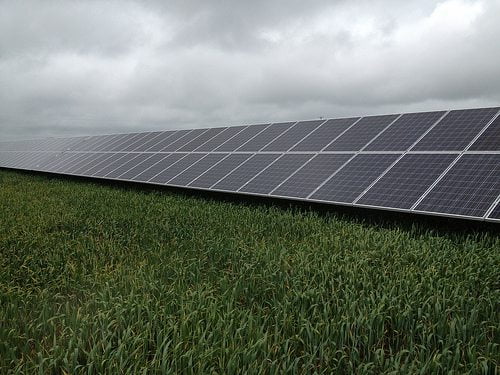

News
UK at all-time low in attractiveness for renewable energy investment
The UK has fallen to 7th place in the renewable energy attractiveness index for the first time since December 2009 due to instability in government legislature and the emergence of more attractive, foreign markets.
Blue & Green Tomorrow is currently running a crowdfunder to ensure its survival. Please pledge.
According to a report conducted by financial advisory firm EY, the UK is lagging behind in clean energy development, with investors reluctant to invest with a lack of a clear directive from the UK government.
Investor confidence has been particularly shaken by Ed Davey’s apparent illegal U-turn on solar subsidies, as the Department for Energy and Climate Change (DECC) withdraws the Renewables Obligation (RO) support for solar projects above 5 megawatt (MW), two years earlier than planned.
The move has sparked the 4th judicial review of DECC’s policy changes, led by the larger solar industry leaders who believe the move to be illegal and detrimental to the industries growth.
“The booming UK solar sector, one of only six markets globally to surpass the 5 gigawatt (GW) installed capacity, was caught by surprise by the government’s consultation in May,” said Ben Warren, environmental finance leader at EY.
He added, “Legal challenges and investor petitions have been launched in response, urging the government to give the sector more time and greater policy stability to compete with conventional fuels.”
In addition, the UK government has already allocated the majority of the funding available to support renewable energy projects through to 2020, leaving nothing to boost markets under threat from other markets emerging elsewhere, “leaving investors and developers concerned about budgetary constraints for future projects,” said Warren.
EY’s analysis also highlighted the emerging clean energy markets in India, Brazil, Chile, South Africa and Kenya – who have far greater government support – as another fundamental reason why the UK is now at its lowest level for almost five years in renewable investment.
The newly elected Indian government has prioritised sustainable energy as a platform for large scale economic growth. The sub-continent has recently doubled all tax relating to coal, with the newly acquired revenue now being used to develop its clean energy projects – including the world’s largest floating solar parks with the promise to power India’s remaining 400 million households which do not yet have electricity.
Photo source: Abundance Generation via Flickr
Further Reading:
Ed Davey faces judicial review over alleged illegal solar policy U-turn
Vikram Solar to build world’s largest floating solar plant in India
Government’s capacity market could increase electricity bills and emissions, warn MPs
Renewable manifesto sets out blueprint for next government
EU approves UK’s renewable subsidy scheme and capacity market


 Environment12 months ago
Environment12 months agoAre Polymer Banknotes: an Eco-Friendly Trend or a Groundswell?

 Features11 months ago
Features11 months agoEco-Friendly Cryptocurrencies: Sustainable Investment Choices

 Features12 months ago
Features12 months agoEco-Friendly Crypto Traders Must Find the Right Exchange

 Energy11 months ago
Energy11 months agoThe Growing Role of Solar Panels in Ireland’s Energy Future



























